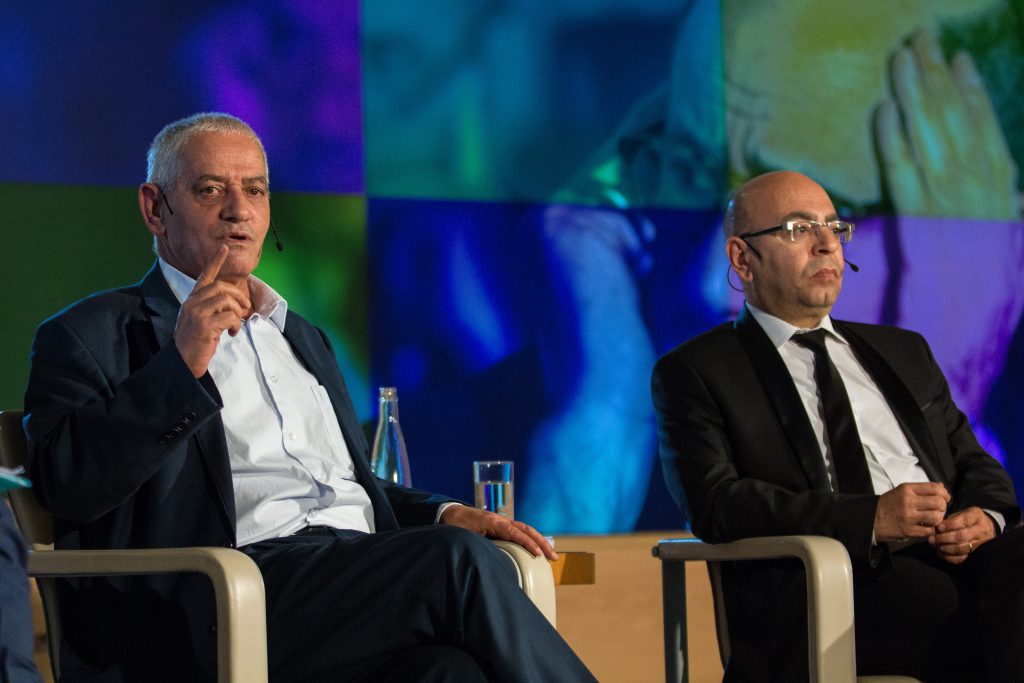Three Lessons Tunisia Can Teach Brexit Britain About Building Consensus
Tunisia’s example offers three important lessons on how to solve divisive political issues like Brexit: consensus should incorporate societal interests beyond government; pressure is helpful, not harmful; and it takes prestigious personalities to mediate a solution.
As deadline follows deadline over Brexit, the issue polarizes British society like few issues have for decades. The House of Commons has repeatedly voted down Prime Minister Theresa May’s deal but has not come up with an alternative approach commanding a majority. This is hardly surprising after only a few days of open debate and voting. Nonetheless, the risk that a botched outcome to the process could divide the country for many years to come is real. Just look at the state of US politics to get an idea of what scenarios are available even for countries with many decades of democratic tradition.
As unlikely as it may sound, the young democracy of Tunisia may have an interesting lesson to provide for one of the oldest democracies. Only five years ago, Tunisia passed a constitution for the country’s post-authoritarian future. After the fall of the corrupt and autocratic Ben Ali regime in 2011, the country elected a National Constituent Assembly, but gave it only one year to draft the new basic law. A spike in violent Islamist attacks and a tanking economy led the process into deadlock as government and opposition looked at each other in deep mistrust. Did the Islamist-led government condone extremist activity? Did the opposition seek to putsch its way into office against the elected institutions? In nearby Egypt, the confrontation between secular opposition and Islamist government turned into disturbing violence as members of Tunisia’s constitution-writing Assembly quit their work in protest.
The unlikely similarities
Despite big differences between Tunisia and Britain, some similarities are at hand: Brexit is the most profound constitutional issue the UK has faced for decades and by triggering Article 50 early, it too gave itself far too little time to work through its complex challenges. The battle lines in Britain are not drawn between government and opposition as much as between Leavers and Remainers in both main parties, but the deadlock over Brexit is real – even if few believe it may lead to a putsch.
In Tunisia, it was the critical intervention by civil society that saved the day. The leader of the powerful Trade Union Association UGTT strong-armed politicians into agreeing a binding road map to find a compromise over the political transition. In a quartet of civil society organisations – the employers’ association, Bar Association, and Human Rights League also joined it – the trade unionists then facilitated a National Dialogue between political leaders. Slightly removed from the public eye, the National Dialogue managed to find compromises on key outstanding issues. The resulting constitution was passed in the National Constituent Assembly with a broad majority six months later. Ultimately, this process combined the electoral legitimacy of the institutions’ work with the legitimacy that compromise and representation conferred onto the result. The key political forces were included in the process and everyone had to give something up allowing all parties to save face. So far, the consensus has worked. In 2015, the quartet of CSOs was awarded the Nobel Peace Prize. While challenges remain, Tunisia is now stably categorized as a democracy the Bertelsmann Transformation Index since the Arab Uprisings – a remarkable feat against the bleak backdrop of its regional neighbours’ fate. In fact, the country’s score in the Bertelsmann Transformation Index (BTI) has risen so much that it now boasts the third highest improvement in the BTI’s Democracy Index between 2006 and 2018.
Democracy is not just about elections
What can Britain learn from Tunisia’s experience? First, being elected is not enough. By going for the hardest of Brexit deals (notwithstanding the “No Deal” disorderly Brexit), Theresa May chose a particularly extreme interpretation of what leaving the European Union meant. Despite the narrow margin of the 2016 referendum result, the views of the 48 per cent who voted to stay in the EU were largely disregarded as standing in the way of “the will of the people”. For the way forward, Britain needs to find a consensus that includes all key political forces, including leavers and remainers, within the elected institutions and without. Merely holding talks between the two largest political parties will not suffice. Civil society, representatives of the four constituent nations of the United Kingdom and other political parties will need to be included to make deliberations representative.
Second, it takes pressure to force political opponents into compromise. Under the six month-long “flextension” agreed by the European Council, the UK has the opportunity to leave whenever the withdrawal agreement has been passed by parliament, but will automatically cease membership in the end of October 2019. Along the way, an agreed road map between politicians can keep up constant pressure by providing a number of fixed deadlines for agreements on specific issues. Expect more late night-voting in the House of Commons if this is the way forward.
Finally, it takes competent mediators to bring the different parties to the table outside the institutions and identify a compromise that is both workable and face-saving for everyone. The spectacular U-turns by Brexiters like Boris Johnson and Jacob Rees-Mogg show that changes of heart may be easier to produce among diehard Brexit MPs than initially expected. Nonetheless, under these challenging circumstances, it will take people of special skill and prestige to mediate a way forward on Brexit that can satisfy all parties. The question is: Who will do it?
Fabian Stroetges is a Doctoral Researcher at Durham University’s School of Government and International Affairs and BTI country expert for Tunisia.

